Taxation Law Assignment: Analysis of Piper's Taxation and Retirement
VerifiedAdded on 2022/10/04
|6
|685
|19
Homework Assignment
AI Summary
This taxation law assignment examines the tax implications for Piper, a sessional lecturer, regarding her foreign retirement fund and its transfer to an Australian bank account. The assignment addresses the potential tax liabilities associated with the transfer, emphasizing that any amount transferred from the foreign fund is to be included in Piper's taxable income and taxed at the marginal tax rate. It explores strategies to mitigate tax obligations, including estate planning and tax planning, such as re-contribution strategies to lower the assessable component and utilizing the super account for income streams after retirement. The assignment highlights the importance of considering age, tax-free portions, and the potential tax offsets available. It also references key sources on financial competence, superannuation, and post-retirement policies, providing a comprehensive analysis of Piper's tax situation.
1 out of 6
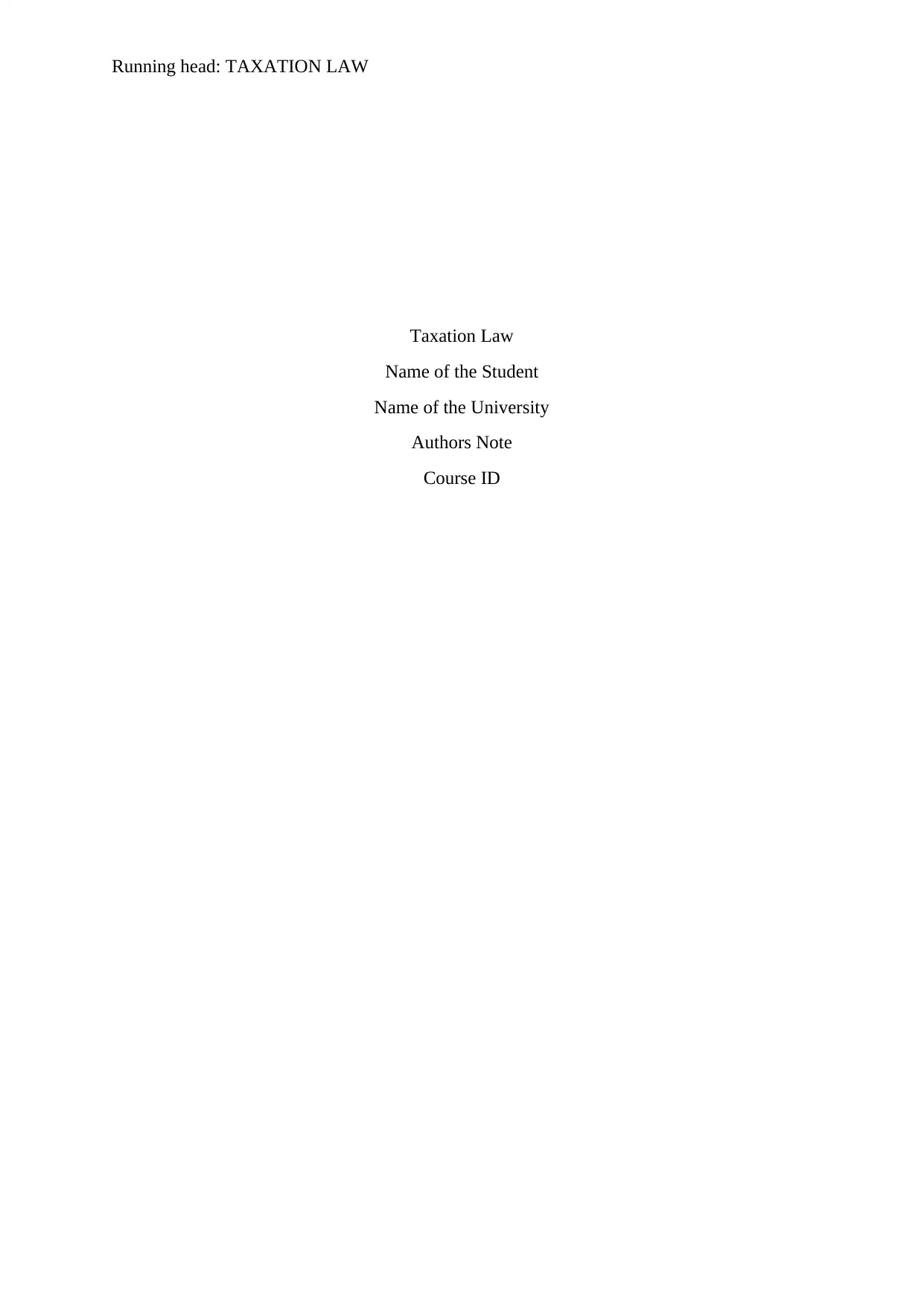

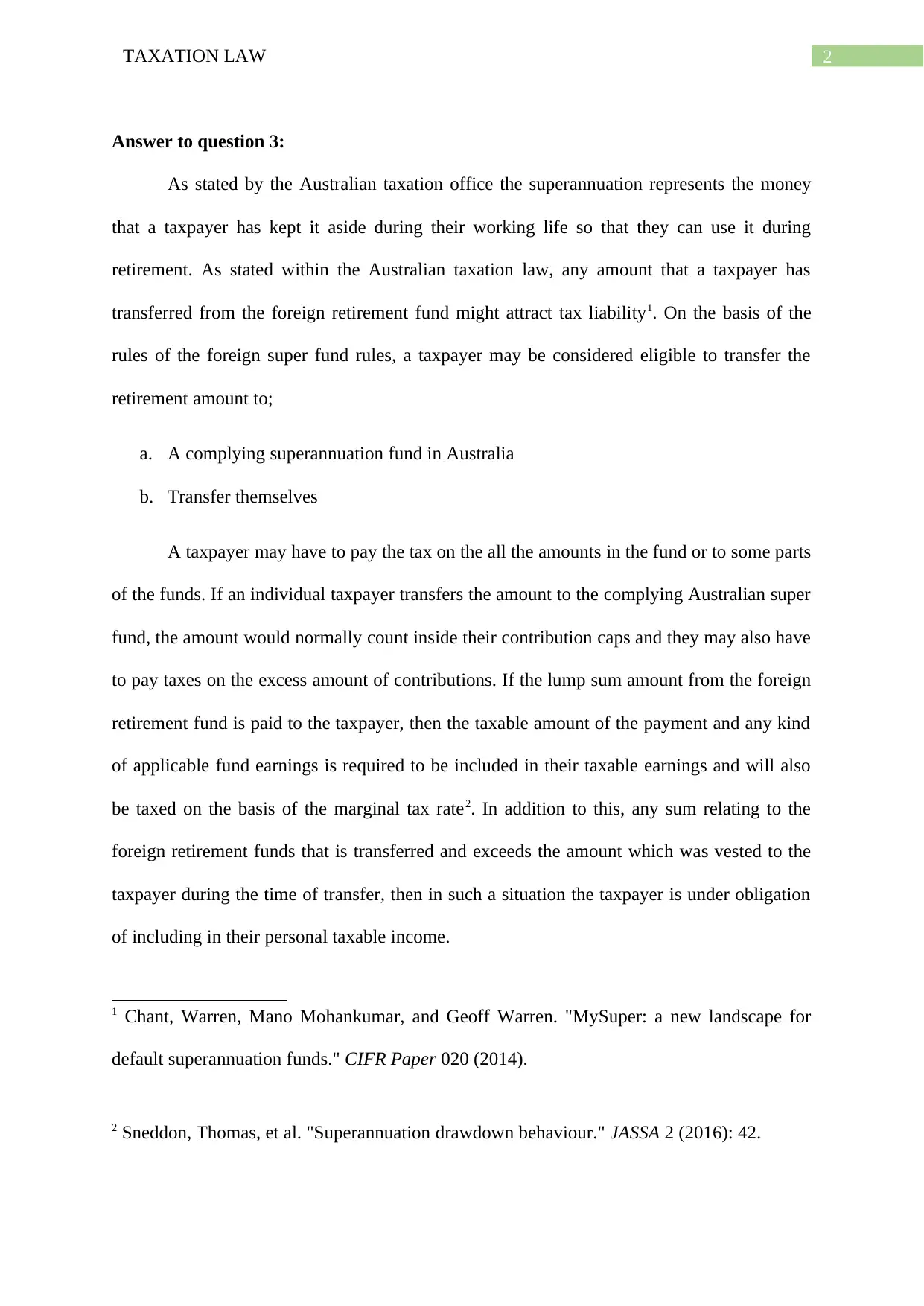

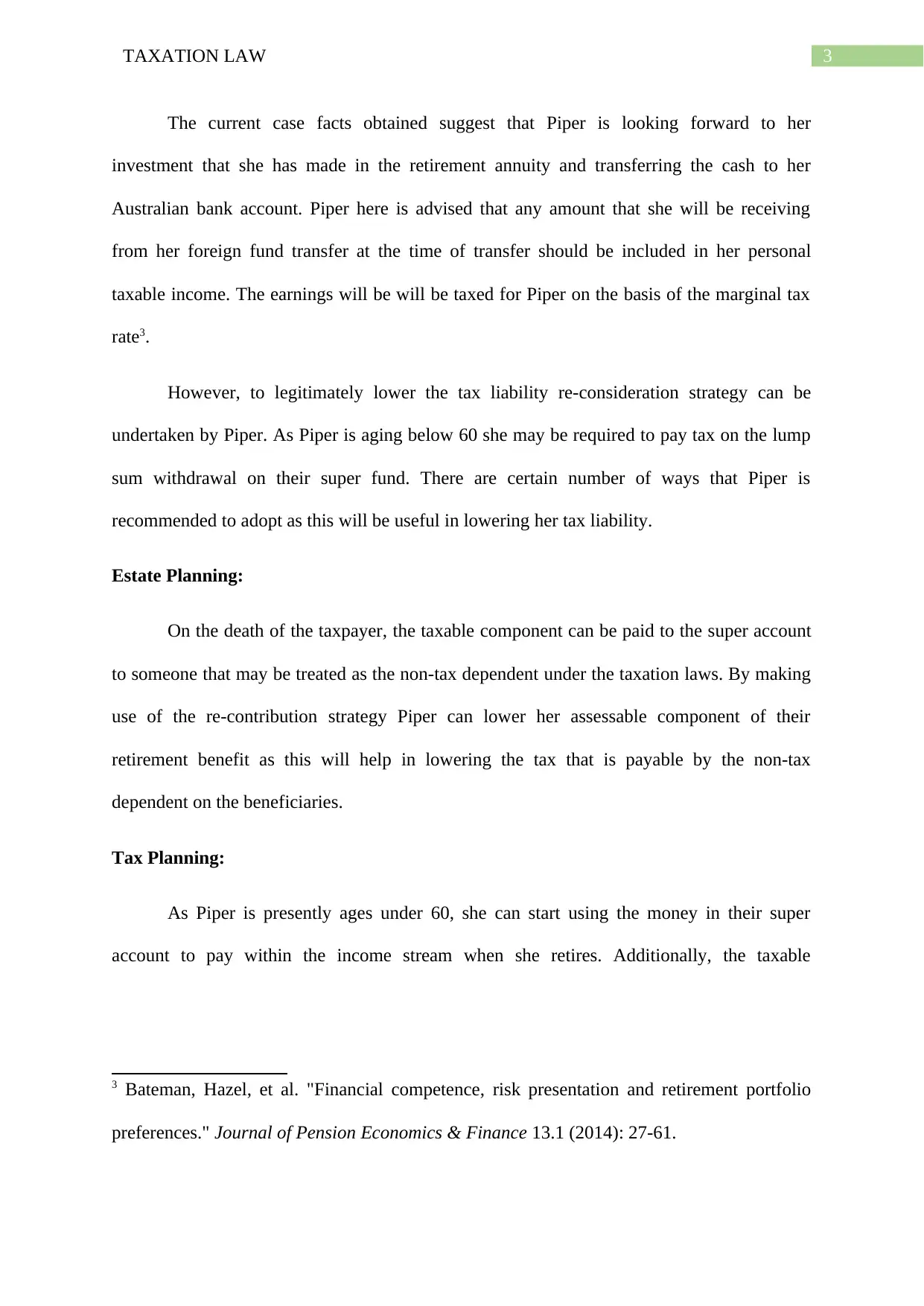
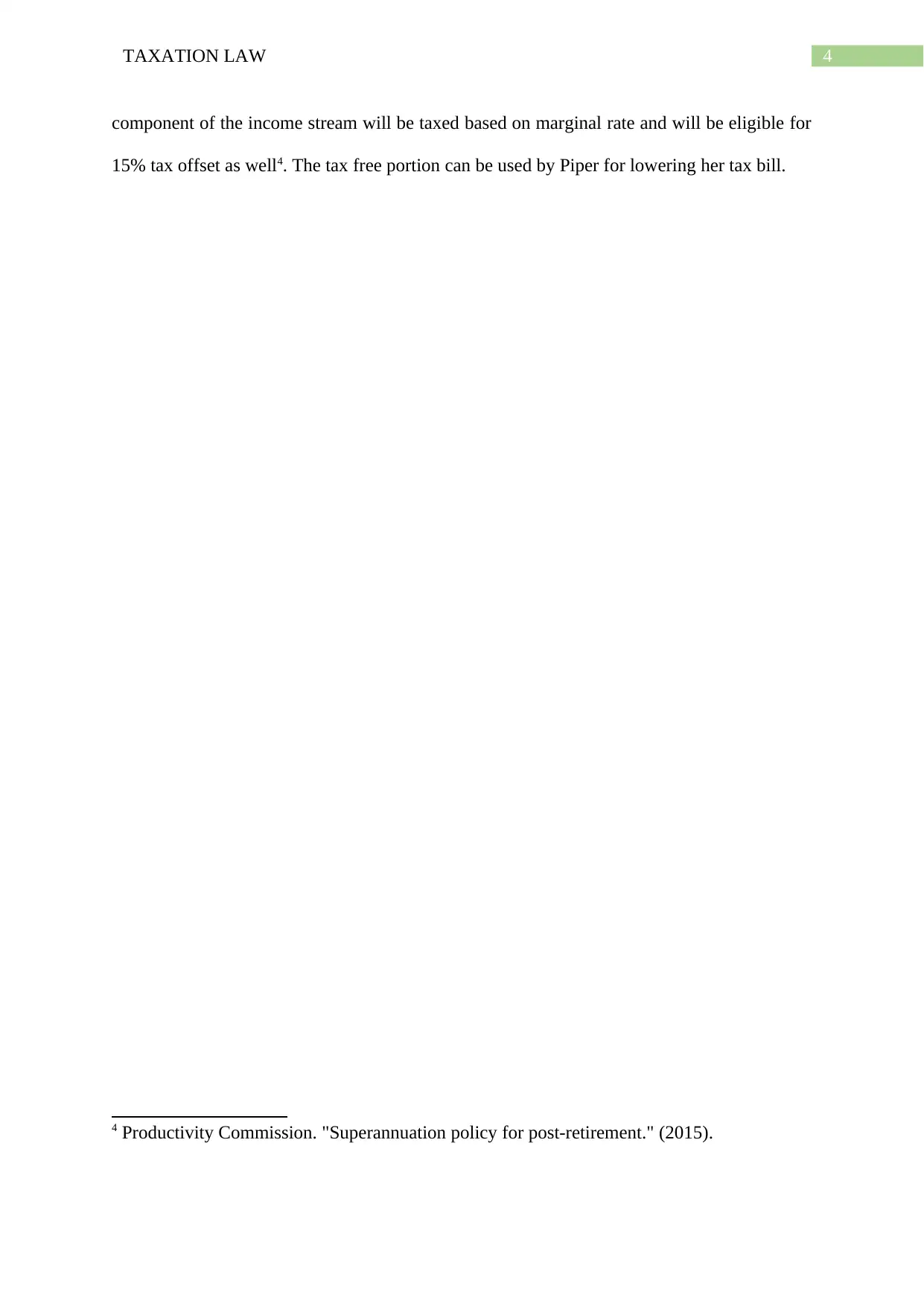
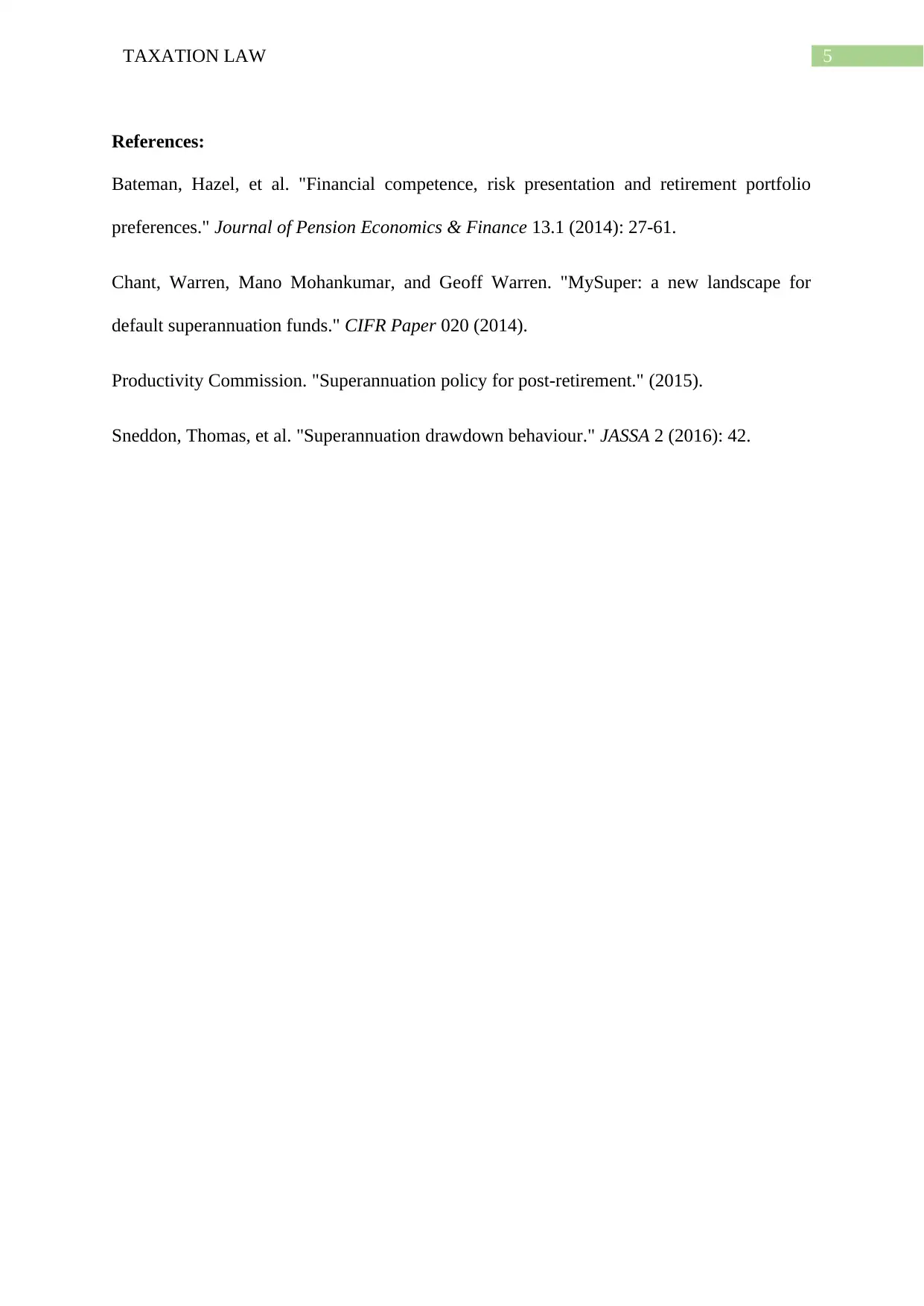






![[object Object]](/_next/static/media/star-bottom.7253800d.svg)